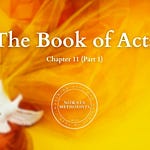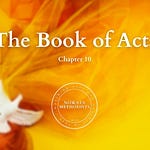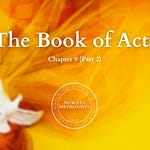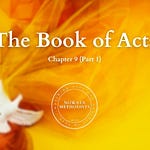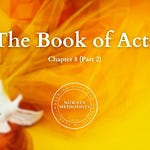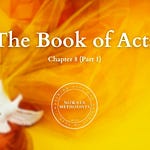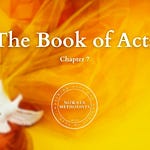So ends the Southern Kingdom of Judah. Yesterday we covered the end of the Northern Kingdom of Israel. Today we conclude an era in which God’s chosen people would be able to rule themselves in the Holy Land. Even when they later return, it isn’t the same. The Golden Age of the Hebrews draws to an ignominious close with client kings and shame. In fact, any “golden age” was short lived and only a shadow of what might have been. The story of the Hebrews is one of great disappointment. There were glimpses of glory, but human nature so benighted them as to require God to come in the flesh to fulfill what they could not.
Thank the Lord for that Savior, the fulfillment, not just of Israel, but of Wisdom herself, as seen in the Proverbs reading. True wisdom is to gaze upon Christ and be changed into his likeness. That is why James speaks of the scriptures as a mirror that reflects the regenerate as we are meant to be. To know the mind of Christ, to have the mind of Christ, is the fulfillment of all our yearnings. We read our scriptures to know the particulars of what that means. Read and believe your bible!
2 Kings 21
Manasseh was twelve years old when he became king, and he reigned in Jerusalem fifty-five years. His mother’s name was Hephzibah.
And he did evil in the sight of the LORD by following the abominations of the nations that the LORD had driven out before the Israelites.
For he rebuilt the high places that his father Hezekiah had destroyed, and he raised up altars for Baal. He made an Asherah pole, as King Ahab of Israel had done, and he worshiped and served all the host of heaven.
Manasseh also built altars in the house of the LORD, of which the LORD had said, “In Jerusalem I will put My Name.”
In both courtyards of the house of the LORD, he built altars to all the host of heaven.
He sacrificed his own son in the fire, practiced sorcery and divination, and consulted mediums and spiritists. He did great evil in the sight of the LORD, provoking Him to anger.
Manasseh even took the carved Asherah pole he had made and set it up in the temple, of which the LORD had said to David and his son Solomon, “In this temple and in Jerusalem, which I have chosen out of all the tribes of Israel, I will establish My Name forever.
I will never again cause the feet of the Israelites to wander from the land that I gave to their fathers, if only they are careful to do all I have commanded them—the whole Law that My servant Moses commanded them.”
But the people did not listen and Manasseh led them astray, so that they did greater evil than the nations that the LORD had destroyed before the Israelites.
And the LORD spoke through His servants the prophets, saying,
“Since Manasseh king of Judah has committed all these abominations, acting more wickedly than the Amorites who preceded him, and with his idols has caused Judah to sin,
this is what the LORD, the God of Israel, says: ‘Behold, I am bringing such calamity upon Jerusalem and Judah that the news will reverberate in the ears of all who hear it.
I will stretch out over Jerusalem the measuring line used against Samaria and the plumb line used against the house of Ahab, and I will wipe out Jerusalem as one wipes out a bowl—wiping it and turning it upside down.
So I will forsake the remnant of My inheritance and deliver them into the hands of their enemies. And they will become plunder and spoil to all their enemies,
because they have done evil in My sight and have provoked Me to anger from the day their fathers came out of Egypt until this day.’ ”
Moreover, Manasseh shed so much innocent blood that he filled Jerusalem from end to end, in addition to the sin that he had caused Judah to commit, doing evil in the sight of the LORD.
As for the rest of the acts of Manasseh, along with all his accomplishments and the sin that he committed, are they not written in the Book of the Chronicles of the Kings of Judah?
And Manasseh rested with his fathers and was buried in his palace garden, the garden of Uzza. And his son Amon reigned in his place.
Amon was twenty-two years old when he became king, and he reigned in Jerusalem two years. His mother’s name was Meshullemeth daughter of Haruz; she was from Jotbah.
And he did evil in the sight of the LORD, as his father Manasseh had done. He walked in all the ways of his father, and he served and worshiped the idols his father had served.
He abandoned the LORD, the God of his fathers, and did not walk in the way of the LORD.
Then the servants of Amon conspired against him and killed the king in his palace.
But the people of the land killed all those who had conspired against King Amon, and they made his son Josiah king in his place.
As for the rest of the acts of Amon, along with his accomplishments, are they not written in the Book of the Chronicles of the Kings of Judah?
And he was buried in his tomb in the garden of Uzza, and his son Josiah reigned in his place.
2 Kings 22
Josiah was eight years old when he became king, and he reigned in Jerusalem thirty-one years. His mother’s name was Jedidah daughter of Adaiah; she was from Bozkath.
And he did what was right in the eyes of the LORD and walked in all the ways of his father David; he did not turn aside to the right or to the left.
Now in the eighteenth year of his reign, King Josiah sent the scribe, Shaphan son of Azaliah, the son of Meshullam, to the house of the LORD, saying,
“Go up to Hilkiah the high priest and have him count the money that has been brought into the house of the LORD, which the doorkeepers have collected from the people.
And let them deliver it into the hands of the supervisors of those doing the work on the house of the LORD, who in turn are to give it to the workmen repairing the damages to the house of the LORD—
to the carpenters, builders, and masons—to buy timber and dressed stone to repair the temple.
But they need not account for the money put into their hands, since they work with integrity.”
Then Hilkiah the high priest said to Shaphan the scribe, “I have found the Book of the Law in the house of the LORD!” And he gave it to Shaphan, who read it.
And Shaphan the scribe went to the king and reported, “Your servants have paid out the money that was found in the temple and have put it into the hands of the workers and supervisors of the house of the LORD.”
Moreover, Shaphan the scribe told the king, “Hilkiah the priest has given me a book.” And Shaphan read it in the presence of the king.
When the king heard the words of the Book of the Law, he tore his clothes
and commanded Hilkiah the priest, Ahikam son of Shaphan, Achbor son of Micaiah, Shaphan the scribe, and Asaiah the servant of the king:
“Go and inquire of the LORD for me, for the people, and for all Judah concerning the words in this book that has been found. For great is the wrath of the LORD that burns against us because our fathers have not obeyed the words of this book by doing all that is written about us.”
So Hilkiah the priest, Ahikam, Achbor, Shaphan, and Asaiah went and spoke to Huldah the prophetess, the wife of Shallum son of Tikvah, the son of Harhas, the keeper of the wardrobe. She lived in Jerusalem, in the Second District.
And Huldah said to them, “This is what the LORD, the God of Israel, says: ‘Tell the man who sent you
that this is what the LORD says: I am about to bring calamity on this place and on its people, according to all the words of the book that the king of Judah has read,
because they have forsaken Me and burned incense to other gods, that they might provoke Me to anger with all the works of their hands. My wrath will be kindled against this place and will not be quenched.’
But as for the king of Judah, who sent you to inquire of the LORD, tell him that this is what the LORD, the God of Israel, says: ‘As for the words that you heard,
because your heart was tender and you humbled yourself before the LORD when you heard what I spoke against this place and against its people, that they would become a desolation and a curse, and because you have torn your clothes and wept before Me, I have heard you,’ declares the LORD.
‘Therefore I will indeed gather you to your fathers, and you will be gathered to your grave in peace. Your eyes will not see all the calamity that I will bring on this place.’ ”
So they brought her answer back to the king.
2 Kings 23
Then the king summoned all the elders of Judah and Jerusalem.
And he went up to the house of the LORD with all the people of Judah and Jerusalem, as well as the priests and the prophets—all the people small and great—and in their hearing he read all the words of the Book of the Covenant that had been found in the house of the LORD.
So the king stood by the pillar and made a covenant before the LORD to follow the LORD and to keep His commandments, decrees, and statutes with all his heart and all his soul, and to carry out the words of this covenant that were written in this book. And all the people entered into the covenant.
Then the king commanded Hilkiah the high priest, the priests second in rank, and the doorkeepers to remove from the temple of the LORD all the articles made for Baal, Asherah, and all the host of heaven. And he burned them outside Jerusalem in the fields of Kidron and carried their ashes to Bethel.
Josiah also did away with the idolatrous priests ordained by the kings of Judah to burn incense on the high places of the cities of Judah and in the places all around Jerusalem—those who had burned incense to Baal, to the sun and moon, to the constellations, and to all the host of heaven.
He brought the Asherah pole from the house of the LORD to the Kidron Valley outside Jerusalem, and there he burned it, ground it to powder, and threw its dust on the graves of the common people.
He also tore down the quarters of the male shrine prostitutes that were in the house of the LORD, where the women had woven tapestries for Asherah.
Then Josiah brought all the priests from the cities of Judah and desecrated the high places, from Geba to Beersheba, where the priests had burned incense. He tore down the high places of the gates at the entrance of the gate of Joshua the governor of the city, which was to the left of the city gate.
Although the priests of the high places did not come up to the altar of the LORD in Jerusalem, they ate unleavened bread with their fellow priests.
He also desecrated Topheth in the Valley of Ben-hinnom so that no one could sacrifice his son or daughter in the fire to Molech.
And he removed from the entrance to the house of the LORD the horses that the kings of Judah had dedicated to the sun. They were in the court near the chamber of an official named Nathan-melech. And Josiah burned up the chariots of the sun.
He pulled down the altars that the kings of Judah had set up on the roof near the upper chamber of Ahaz, and the altars that Manasseh had set up in the two courtyards of the house of the LORD. The king pulverized them there and threw their dust into the Kidron Valley.
The king also desecrated the high places east of Jerusalem, to the south of the Mount of Corruption, which King Solomon of Israel had built for Ashtoreth the abomination of the Sidonians, for Chemosh the abomination of the Moabites, and for Milcom the abomination of the Ammonites.
He smashed the sacred pillars to pieces, cut down the Asherah poles, and covered the sites with human bones.
He even pulled down the altar at Bethel, the high place set up by Jeroboam son of Nebat, who had caused Israel to sin. Then he burned the high place, ground it to powder, and burned the Asherah pole.
And as Josiah turned, he saw the tombs there on the hillside, and he sent someone to take the bones out of the tombs, and he burned them on the altar to defile it, according to the word of the LORD proclaimed by the man of God who had foretold these things.
Then the king asked, “What is this monument I see?”
And the men of the city replied, “It is the tomb of the man of God who came from Judah and pronounced these things that you have done to the altar of Bethel.”
“Let him rest,” said Josiah. “Do not let anyone disturb his bones.”
So they left his bones undisturbed, along with those of the prophet who had come from Samaria.
Just as Josiah had done at Bethel, so also in the cities of Samaria he removed all the shrines of the high places set up by the kings of Israel who had provoked the LORD to anger.
On the altars he slaughtered all the priests of the high places, and he burned human bones on them. Then he returned to Jerusalem.
The king commanded all the people, “Keep the Passover of the LORD your God, as it is written in this Book of the Covenant.”
No such Passover had been observed from the days of the judges who had governed Israel through all the days of the kings of Israel and Judah.
But in the eighteenth year of Josiah’s reign, this Passover was observed to the LORD in Jerusalem.
Furthermore, Josiah removed the mediums and spiritists, the household gods and idols, and all the abominations that were seen in the land of Judah and in Jerusalem. He did this to carry out the words of the law written in the book that Hilkiah the priest had found in the house of the LORD.
Neither before nor after Josiah was there any king like him, who turned to the LORD with all his heart and with all his soul and with all his strength, according to all the Law of Moses.
Nevertheless, the LORD did not turn away from the fury of His burning anger, which was kindled against Judah because of all that Manasseh had done to provoke Him to anger.
For the LORD had said, “I will remove Judah from My sight, just as I removed Israel. I will reject this city Jerusalem, which I chose, and the temple of which I said, ‘My Name shall be there.’ ”
As for the rest of the acts of Josiah, along with all his accomplishments, are they not written in the Book of the Chronicles of the Kings of Judah?
At the end of Josiah’s reign, Pharaoh Neco king of Egypt marched up to help the king of Assyria at the Euphrates River. King Josiah went out to confront him, but Neco faced him and killed him at Megiddo.
From Megiddo his servants carried his body in a chariot, brought him to Jerusalem, and buried him in his own tomb. Then the people of the land took Jehoahaz son of Josiah, anointed him, and made him king in place of his father.
Jehoahaz was twenty-three years old when he became king, and he reigned in Jerusalem three months. His mother’s name was Hamutal daughter of Jeremiah; she was from Libnah.
And he did evil in the sight of the LORD, just as his fathers had done.
And Pharaoh Neco imprisoned Jehoahaz at Riblah in the land of Hamath so that he could not reign in Jerusalem, and he imposed on Judah a levy of a hundred talents of silver and a talent of gold.
Then Pharaoh Neco made Eliakim son of Josiah king in place of his father Josiah, and he changed Eliakim’s name to Jehoiakim. But Neco took Jehoahaz and carried him off to Egypt, where he died.
So Jehoiakim paid the silver and gold to Pharaoh Neco, but to meet Pharaoh’s demand he taxed the land and exacted the silver and the gold from the people, each according to his wealth.
Jehoiakim was twenty-five years old when he became king, and he reigned in Jerusalem eleven years. His mother’s name was Zebidah daughter of Pedaiah; she was from Rumah.
And he did evil in the sight of the LORD, just as his fathers had done.
2 Kings 24
During Jehoiakim’s reign, Nebuchadnezzar king of Babylon invaded. So Jehoiakim became his vassal for three years, until he turned and rebelled against Nebuchadnezzar.
And the LORD sent Chaldean, Aramean, Moabite, and Ammonite raiders against Jehoiakim in order to destroy Judah, according to the word that the LORD had spoken through His servants the prophets.
Surely this happened to Judah at the LORD’s command, to remove them from His presence because of the sins of Manasseh and all that he had done,
and also for the innocent blood he had shed. For he had filled Jerusalem with innocent blood, and the LORD was unwilling to forgive.
As for the rest of the acts of Jehoiakim, along with all his accomplishments, are they not written in the Book of the Chronicles of the Kings of Judah?
And Jehoiakim rested with his fathers, and his son Jehoiachin reigned in his place.
Now the king of Egypt did not march out of his land again, because the king of Babylon had taken all his territory, from the Brook of Egypt to the Euphrates River.
Jehoiachin was eighteen years old when he became king, and he reigned in Jerusalem three months. His mother’s name was Nehushta daughter of Elnathan; she was from Jerusalem.
And he did evil in the sight of the LORD, just as his father had done.
At that time the servants of Nebuchadnezzar king of Babylon marched up to Jerusalem, and the city came under siege.
And Nebuchadnezzar king of Babylon came to the city while his servants were besieging it.
Jehoiachin king of Judah, his mother, his servants, his commanders, and his officials all surrendered to the king of Babylon.
So in the eighth year of his reign, the king of Babylon took him captive.
As the LORD had declared, Nebuchadnezzar also carried off all the treasures from the house of the LORD and the royal palace, and he cut into pieces all the gold articles that Solomon king of Israel had made in the temple of the LORD.
He carried into exile all Jerusalem—all the commanders and mighty men of valor, all the craftsmen and metalsmiths—ten thousand captives in all. Only the poorest people of the land remained.
Nebuchadnezzar carried away Jehoiachin to Babylon, as well as the king’s mother, his wives, his officials, and the leading men of the land. He took them into exile from Jerusalem to Babylon.
The king of Babylon also brought into exile to Babylon all seven thousand men of valor and a thousand craftsmen and metalsmiths—all strong and fit for battle.
Then the king of Babylon made Mattaniah, Jehoiachin’s uncle, king in his place and changed his name to Zedekiah.
Zedekiah was twenty-one years old when he became king, and he reigned in Jerusalem eleven years. His mother’s name was Hamutal daughter of Jeremiah; she was from Libnah.
And Zedekiah did evil in the sight of the LORD, just as Jehoiakim had done.
For because of the anger of the LORD, all this happened in Jerusalem and Judah, until He finally banished them from His presence.
And Zedekiah also rebelled against the king of Babylon.
2 Kings 25
So in the ninth year of Zedekiah’s reign, on the tenth day of the tenth month, Nebuchadnezzar king of Babylon marched against Jerusalem with his entire army. They encamped outside the city and built a siege wall all around it.
And the city was kept under siege until King Zedekiah’s eleventh year.
By the ninth day of the fourth month, the famine in the city was so severe that the people of the land had no food.
Then the city was breached; and though the Chaldeans had surrounded the city, all the men of war fled by night by way of the gate between the two walls near the king’s garden.
They headed toward the Arabah, but the army of the Chaldeans pursued the king and overtook him in the plains of Jericho, and all his army was separated from him.
The Chaldeans seized the king and brought him up to the king of Babylon at Riblah, where they pronounced judgment on him.
And they slaughtered the sons of Zedekiah before his eyes. Then they put out his eyes, bound him with bronze shackles, and took him to Babylon.
On the seventh day of the fifth month, in the nineteenth year of Nebuchadnezzar’s reign over Babylon, Nebuzaradan captain of the guard, a servant of the king of Babylon, entered Jerusalem.
He burned down the house of the LORD, the royal palace, and all the houses of Jerusalem—every significant building.
And the whole army of the Chaldeans under the captain of the guard broke down the walls around Jerusalem.
Then Nebuzaradan captain of the guard carried into exile the people who remained in the city, along with the deserters who had defected to the king of Babylon and the rest of the population.
But the captain of the guard left behind some of the poorest of the land to tend the vineyards and fields.
Moreover, the Chaldeans broke up the bronze pillars and stands and the bronze Sea in the house of the LORD, and they carried the bronze to Babylon.
They also took away the pots, shovels, wick trimmers, dishes, and all the articles of bronze used in the temple service.
The captain of the guard also took away the censers and sprinkling bowls—anything made of pure gold or fine silver.
As for the two pillars, the Sea, and the movable stands that Solomon had made for the house of the LORD, the weight of the bronze from all these articles was beyond measure.
Each pillar was eighteen cubits tall. The bronze capital atop one pillar was three cubits high, with a network of bronze pomegranates all around. The second pillar, with its network, was similar.
The captain of the guard also took away Seraiah the chief priest, Zephaniah the priest of second rank, and the three doorkeepers.
Of those still in the city, he took a court official who had been appointed over the men of war, as well as five royal advisors. He also took the scribe of the captain of the army, who had enlisted the people of the land, and sixty men who were found in the city.
Nebuzaradan captain of the guard took them and brought them to the king of Babylon at Riblah.
There at Riblah in the land of Hamath, the king of Babylon struck them down and put them to death. So Judah was taken into exile, away from its own land.
Nebuchadnezzar king of Babylon appointed Gedaliah son of Ahikam, the son of Shaphan, over the people he had left behind in the land of Judah.
When all the commanders of the armies and their men heard that the king of Babylon had appointed Gedaliah as governor, they came to Gedaliah at Mizpah—Ishmael son of Nethaniah, Johanan son of Kareah, Seraiah son of Tanhumeth the Netophathite, and Jaazaniah son of the Maacathite, as well as their men.
And Gedaliah took an oath before them and their men, assuring them, “Do not be afraid of the servants of the Chaldeans. Live in the land and serve the king of Babylon, and it will be well with you.”
In the seventh month, however, Ishmael son of Nethaniah, the son of Elishama, who was a member of the royal family, came with ten men and struck down and killed Gedaliah, along with the Judeans and Chaldeans who were with him at Mizpah.
Then all the people small and great, together with the commanders of the army, arose and fled to Egypt for fear of the Chaldeans.
On the twenty-seventh day of the twelfth month of the thirty-seventh year of the exile of Judah’s King Jehoiachin, in the year Evil-merodach became king of Babylon, he released King Jehoiachin of Judah from prison.
And he spoke kindly to Jehoiachin and set his throne above the thrones of the other kings who were with him in Babylon.
So Jehoiachin changed out of his prison clothes, and he dined regularly at the king’s table for the rest of his life. And the king provided Jehoiachin a daily portion for the rest of his life.
Proverbs 8
Does not wisdom call out,
and understanding raise her voice?
On the heights overlooking the road,
at the crossroads she takes her stand.
Beside the gates to the city,
at the entrances she cries out:
“To you, O men, I call out,
and my cry is to the sons of men.
O simple ones, learn to be shrewd;
O fools, gain understanding.
Listen, for I speak of noble things,
and the opening of my lips will reveal right.
For my mouth will speak the truth,
and wickedness is detestable to my lips.
All the words of my mouth are righteous;
none are crooked or perverse.
They are all plain to the discerning,
and upright to those who find knowledge.
Receive my instruction instead of silver,
and knowledge rather than pure gold.
For wisdom is more precious than rubies,
and nothing you desire compares with her.
I, wisdom, dwell together with prudence,
and I find knowledge and discretion.
To fear the LORD is to hate evil;
I hate arrogant pride, evil conduct, and perverse speech.
Counsel and sound judgment are mine;
I have insight and strength.
By me kings reign,
and rulers enact just laws;
By me princes rule,
and all nobles who govern justly.
I love those who love me,
and those who seek me early shall find me.
With me are riches and honor,
enduring wealth and righteousness.
My fruit is better than gold, pure gold,
and my harvest surpasses choice silver.
I walk in the way of righteousness,
along the paths of justice,
bestowing wealth on those who love me
and making their treasuries full.
The LORD created me as His first course,
before His works of old.
From everlasting I was established,
from the beginning, before the earth began.
When there were no watery depths, I was brought forth,
when no springs were overflowing with water.
Before the mountains were settled,
before the hills, I was brought forth,
before He made the land or fields,
or any of the dust of the earth.
I was there when He established the heavens,
when He inscribed a circle on the face of the deep,
when He established the clouds above,
when the fountains of the deep gushed forth,
when He set a boundary for the sea,
so that the waters would not surpass His command,
when He marked out the foundations of the earth.
Then I was a skilled craftsman at His side,
and His delight day by day,
rejoicing always in His presence.
I was rejoicing in His whole world,
delighting together in the sons of men.
Now therefore, my sons, listen to me,
for blessed are those who keep my ways.
Listen to instruction and be wise;
do not ignore it.
Blessed is the man who listens to me,
watching daily at my doors,
waiting at the posts of my doorway.
For whoever finds me finds life
and obtains the favor of the LORD.
But he who fails to find me harms himself;
all who hate me love death.”


